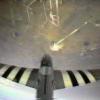
Sign in to follow this
Followers
0

FAA proposes eliminating Hazardous Inflight Weather Advisory Service
By
tf51d, in Hangar Chat


By
tf51d, in Hangar Chat